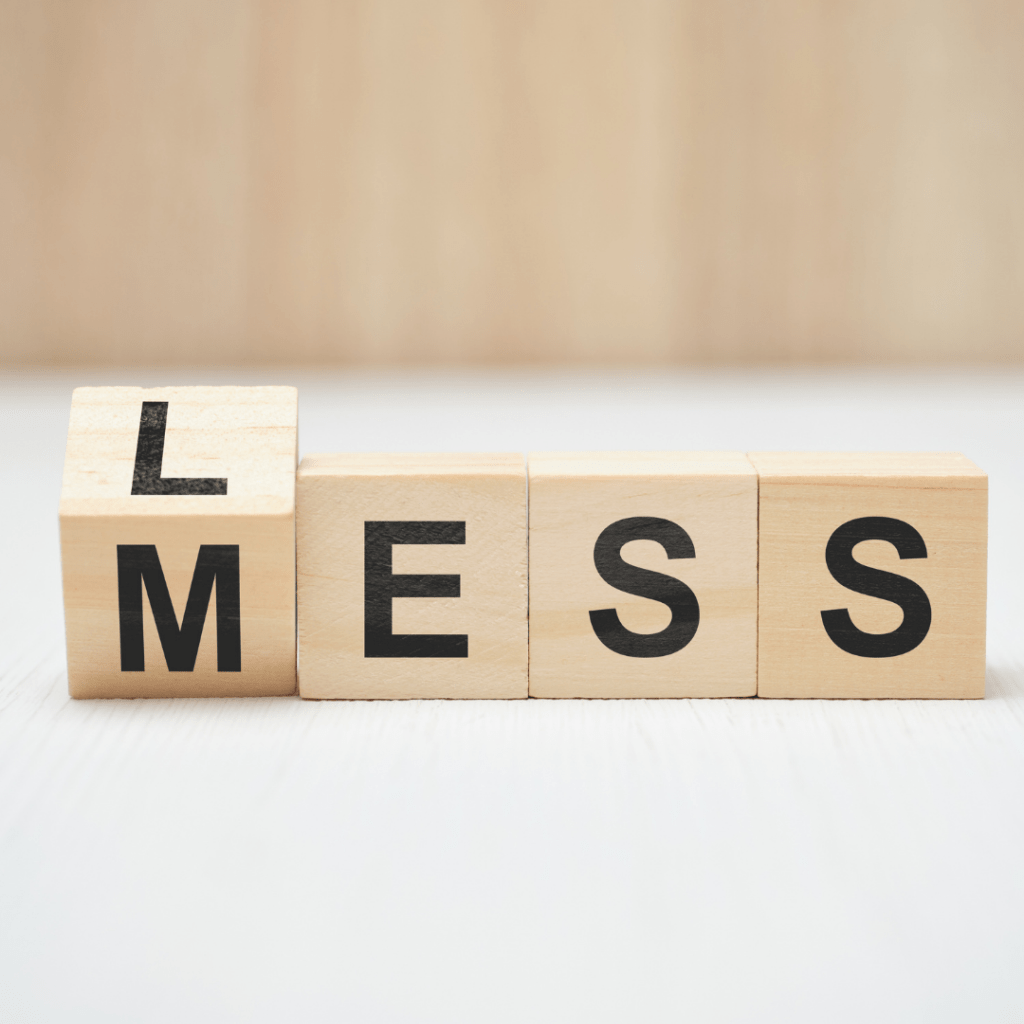
I’ve heard so many stories of people who donated their baby crib thinking they weren’t having any more children, and then they ended up getting pregnant! Or donated something, and then needed it just a few days later. I have felt this exact feeling of regret at times during my life.
How do you know what you should donate or give away and what to keep? You can’t rely on friends and family to know what an item means to you. Or the nuances of your day-to-day life, let alone the expected future. You have to go with your gut and what you know about yourself, and your life. Oh, and what your government requires you to keep, like tax files and business records.
So I’ve put together a list of questions that can guide you through the process. You’ll need to check and see what you need to keep regarding paperwork and records, etc. But otherwise, you get to decide what you want to keep and what you don’t. Over time you can develop an organizing mindset that aligns with your values. This will coincide with what you want in your life and what you don’t.
I’m a firm believer that anyone can learn how to be organized and how to effectively declutter. And I’m going to help you do just that, by teaching you some techniques and giving you some perspective through questions you can ask yourself when you tidy up and tackle those piles of clutter in your home.
How do these questions help?
Do you tend to look at things in your life from only one perspective? Most of us do. But by using questions to get other perspectives, you can make more informed decisions. This is so valuable when you are trying to decide what to do with your stuff. These questions will keep you from donating something that is important while clearing out what’s not. And going through this process cultivates your organized mindset while teaching you to be more intentional with your belongings and purchases going forward.
Why are you keeping it?
This is the first question to ask yourself! Oftentimes the answer makes it clear to you if you should keep it or toss it. We tend to keep everything we buy, even if it’s no longer useful, relevant or needed. I had a client tell me he was told that he needed to keep all his receipts. But was never told why to keep them or for how long. So we sorted through ALL of his receipts to determine his” why” for keeping them moving forward. (Which included boxes and boxes of old receipts for purchases?!) Again, What is your “why”?
When will you need it?
Seriously, are you really going to use this item again?
Has your life moved into a new phase where you’re not entertaining in your home? Then you don’t need all the dishes and appliances and décor that you used to use for this. Donate them to so someone who will love them, and can use them.
Have you changed your career and don’t need to dress up for work anymore? Go ahead and donate those dresses and suits that are just taking up space in your closet. Pass these along to a new graduate who is just now entering the workforce and could really use them.
Is your storage room full of stuff you would donate if you were to move to a new place? Get rid of it and fill your valuable storage real estate for things you love.
Are you retired and no longer using the reference books and course material your storing? Is the information still relevant? If so, donate it.
Could you let it go and in turn make room for your future?
My favorite question:
Is this item adding value to your life, home or business?
Let’s just imagine being surrounded by all the things you love and use! With no clutter to distract you or keep you from creating a life you love. That’s the result you can create by being intentional about your stuff.
When you get right down to it, being organized is being able to find what you need when you need it and remove all the things you don’t want or need.
Naturally, this process results in a simpler decluttered life. Not only does this create space in your home, but it also creates space in your head and your schedule so you can focus on doing more of what you love.
What is your value threshold?
What do I mean by “value threshold”? This is the value to you of the cost of your stuff vs the trouble of taking care of it. Is it really worth the time, expense, and trouble of handling, storing, or moving it? Could you spend under $20 and drive under 20 miles to replace it if you ever needed it again? Or maybe $50 & 50 miles? This is your value threshold of cost vs trouble.
Let me give you an example of this. Have you ever had something you want to return and the store gives you credit without having to actually send the item back? I’ve had this happen with Amazon on multiple occasions. Usually, it’s for items costing $10 or less. That’s Amazon’s determined value threshold of cost vs trouble. Why do they do this? Because just giving you the refund is less than the cost of the shipping and handling of the returned item. It’s just not worth it.
Bonus tip:
If you’re not sure if you should keep it or toss it, you can always set it aside in a “maybe” box and decide later. Once you know why you’re keeping things and what the purpose is for you, you’ll know just what to do. Just circle back and revisit those “maybe” items when you’re ready.
